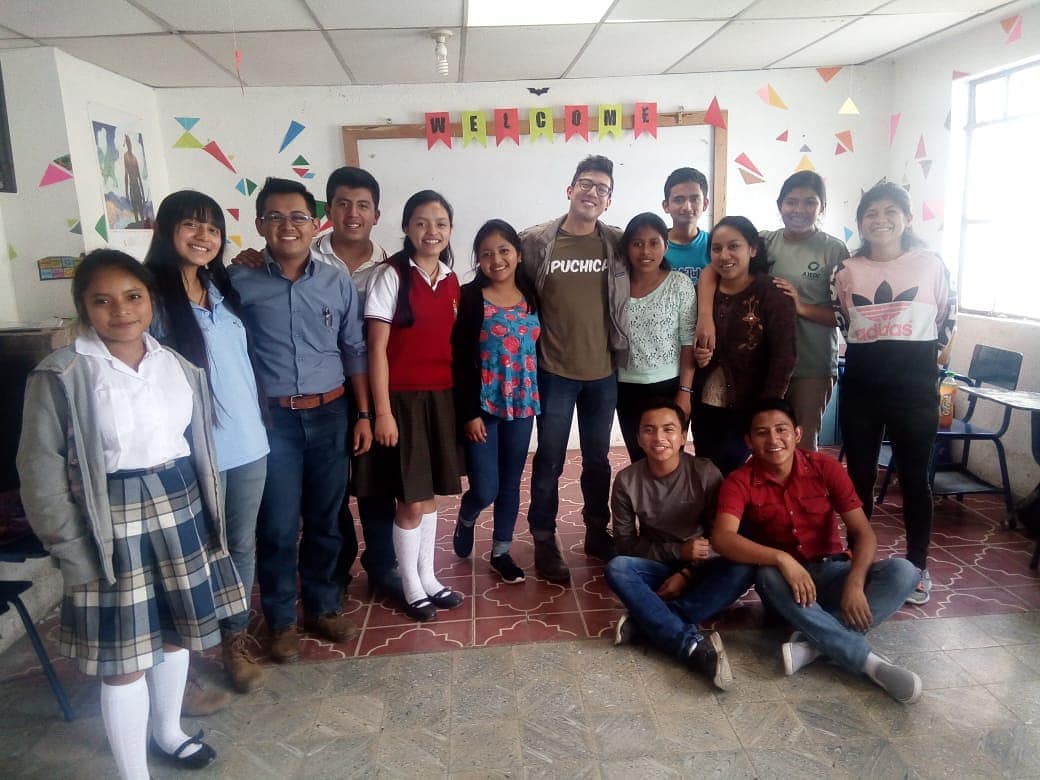Jonathan Peraza Campos (`18C) Fulbright ETA, Guatemala
Award
Fulbright English Teaching Assistantship
Award supported
One-year English teaching placement in Guatemala
Undergraduate major(s)
Sociology
Currently
In Guatemala serving as a 2018-2019 Fulbright ETA Fellow. Taking a gap year from a Master’s in Social Foundations of Education program at Georgia State University, anticipated graduation 2021.
Q: What experiences at Emory prepared you for the Fulbright award?
A: Working with Liz and the NS&FP office gave me a lot of guidance as I applied to these awards. Learning how to write for grants and fellowships through Mellon Mays Undergraduate Fellowship and my faculty mentor, Tim Dowd, also developed my ability and confidence to apply to these awards.
Q: What memorable or interesting things happened during your Fulbright fellowship experience?
 A: The ETA experience has been rewarding because it has helped me to learn how to negotiate my identity as a U.S. Central American. My mother's family is from El Salvador and my father's is from Guatemala, so I have a personal connection to the area. Beyond my teaching experience, I have been able to connect with my homeland and cultural history, while also exploring contemporary issues regarding Central American migration, imperialism, and racism. I have also really enjoyed the flexibility of my specific program in Guatemala. I have been able to create lesson plans on topics from American history and culture, specifically focusing on the stories of marginalized communities, that I feel are significant but are typically not discussed in traditional American classroom settings
A: The ETA experience has been rewarding because it has helped me to learn how to negotiate my identity as a U.S. Central American. My mother's family is from El Salvador and my father's is from Guatemala, so I have a personal connection to the area. Beyond my teaching experience, I have been able to connect with my homeland and cultural history, while also exploring contemporary issues regarding Central American migration, imperialism, and racism. I have also really enjoyed the flexibility of my specific program in Guatemala. I have been able to create lesson plans on topics from American history and culture, specifically focusing on the stories of marginalized communities, that I feel are significant but are typically not discussed in traditional American classroom settings
Q: What advice would you give current applicants, or to students considering applying for a nationally competitive award?
A: Learn to see yourself beyond your imposter syndrome. Many of us who are first-generation, low-income, people of color, queer and trans, women and femmes, tend to see ourselves as unqualified and unable to obtain prestigious awards. We need to learn to see ourselves as the capable, skilled, and insightful people we really are, beyond our own deficit-thinking. We also deserve these awards and we are just as, or more so, qualified than the same pool of white, upper-class applicants that tend to win these awards. Plus, the worst thing you can hear back is "No," so why not try?